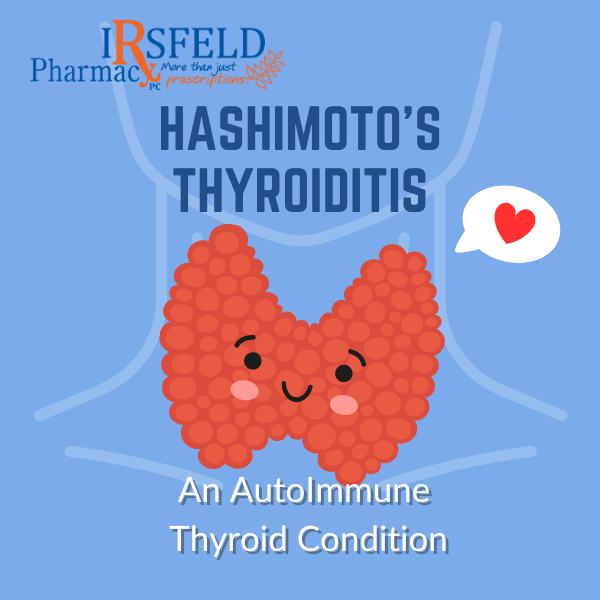Another conference pearl to share....

Last week's article reviewed cholesterol and Lp(a), something my team and I learned more about at a recent conference. Today's article continues the sharing of information that we learned, and the topic is tocotrienols. I hope that you are as impressed as I was after hearing about all the many benefits of tocotrienols.
Tocotrienols are a unique form of vitamin E, an essential nutrient for our health. Although vitamin E is usually associated with tocopherols, another group within the vitamin E family, tocotrienols, has distinct benefits. They're mainly known for their antioxidant, anti-inflammatory, and heart-health-promoting properties. The tocotrienols have four types: alpha, beta, gamma, and delta. Delta-tocotrienols have been gaining attention for their specific benefits, as they are considered the most potent form among the tocotrienols.
To understand tocotrienols, it's essential to understand the vitamin E family first. Vitamin E is a fat-soluble vitamin that dissolves in fats and oils. It is necessary for many bodily functions, particularly for protecting cells from damage caused by oxidative stress. Tocopherols were the first type of vitamin E discovered and are commonly found in foods like almonds, sunflower seeds, and spinach. Tocotrienols, however, are less common and are mainly found in certain plants like annatto, palm oil, and rice bran oil, with the best source being annatto, a seed derived from a tropical shrub, for those who might not get enough food, supplements are available.
Tocotrienols and tocopherols have similar molecular structures but with one important difference: tocotrienols have an unsaturated side chain, while tocopherols have a saturated one. This slight difference in structure makes tocotrienols more effective at penetrating cell membranes, allowing them to work better as antioxidants.
Among the four tocotrienol types, delta-tocotrienol has become a focus for researchers. Delta-tocotrienol is the most bioactive, meaning it has the greatest biological impact on our bodies. It is especially effective in protecting cells from damage and plays a role in reducing inflammation, which can help prevent a variety of chronic diseases.
One of the unique aspects of delta-tocotrienol is its strong antioxidant effect. Antioxidants are compounds that help neutralize free radicals, which are unstable molecules that can damage cells, proteins, and DNA. Free radicals are produced naturally in our bodies, but external factors like pollution, smoking, and unhealthy diets can increase their levels. When free radicals accumulate, they can lead to oxidative stress, linked to aging and diseases such as cancer, heart disease, and diabetes.
Research has shown that delta-tocotrienol may offer several health benefits. First, it has been associated with lowering cholesterol levels. Studies suggest that delta-tocotrienol may inhibit an enzyme responsible for cholesterol production, which could reduce levels of LDL (often referred to as "bad" cholesterol) without affecting HDL ("good" cholesterol).
Delta-tocotrienol is also being studied for its potential in cancer prevention and treatment. Its ability to trigger cell death in cancer cells, a process called apoptosis, makes it a promising study area. Delta-tocotrienol seems to be especially effective against pancreatic, breast, and prostate cancers.
Another benefit is its support for cardiovascular health. Delta-tocotrienol can reduce inflammation in blood vessels and improve overall circulation. Numerous studies have found remarkable reductions of the inflammatory marker hs-CRP by up to 40% in hypercholesterolemic patients using tocotrienol supplementation. Since inflammation is a key factor in heart disease, this can help prevent atherosclerosis, which is the hardening of arteries due to plaque buildup.
Tocotrienols have also been studied in Type II diabetes, including a 24-week study of 110 type 2 diabetes mellitus patients. In this study, annatto tocotrienols were administered at a dosage of 250mg/day. HbA1C was successfully reduced from 8.3% to 7.8% vs. no change in HbA1c levels in the placebo group, which remained at 8.4%. Blood sugar management was supported by significant reductions in fasting blood glucose (6.8%), insulin (7.6%), and HOMA-IR (13.1) for patients taking annatto tocotrienols.
I also wanted to follow up on a group of over 100 tests I did last month through Function Health. Unfortunately, Function Health has a contract with Quest Diagnostics, which has no sites in the states of ND or SD. The closest Quest site is Billings, MT, and I had my labs done in Minneapolis. I hope that, at some point, they will get some sites in the state because I think this is a good deal and could benefit many patients in our state.
When I had the test done, I had a couple of markers I wanted to address: elevated cholesterol and LDL levels. I plan to take 250mg of delta-tocotrienol daily for 4 weeks and then have a basic lipid panel done to see what kind of benefit I receive. A study showed that 4 weeks of 250mg daily decreased total cholesterol by 15%, LDL by 18%, and triglycerides by 14%. I will keep you posted on the results in one of my upcoming articles.
One item you must remember if you take delta tocotrienols is that tocopherols will decrease the absorption of tocotrienols. The two forms of vitamin E derivatives need to be separated by 6 hours. I take a multivitamin that has tocopherols in it, and I take the multivitamin in the morning and at bedtime, so sometime after lunch or with lunch, preferably as it is also recommended to be taken with fat in the meal, is when I will have to take the delta tocotrienol.
The beauty of this little experiment with my cholesterol is that, based on the study, the changes took place after just 4 weeks, so I'm not having to wait 6 months to see if markers have changed. Another thing to consider is that we have access to a low-cost lipid panel locally, so doing the follow-up is easy and cost-effective.
Delta-tocotrienol is an impressive nutrient with strong antioxidant and anti-inflammatory properties. Its benefits in heart health, cholesterol management, and potential cancer-fighting properties make it an exciting area of research. Remember the importance of consulting a healthcare provider before starting any supplement, especially since high doses of vitamin E can interfere with blood clotting. While tocopherols are more commonly associated with vitamin E, delta-tocotrienol and other tocotrienols offer unique advantages that researchers continue to explore.
Stop by or call the pharmacy if you want more information on the many benefits of tocotrienols or help sourcing a delta tocotrienol product. Please visit my website at www.irsfeldpharmacy.com to find this and other archived articles in the blog section.
Until next time, be vigilant about your health!!












Share On: